- Home
- Harlan Ellison
The Top of the Volcano Page 2
The Top of the Volcano Read online
Page 2
CHECK-OUT TIME IS 2:00 pm.
“You got here late. The job’s taken. Sorry.”
YOUR SALARY HAS BEEN DOCKED FOR TWENTY MINUTES TIME LOST.
“God, what time is it, I’ve gotta run!”
And so it goes. And so it goes. And so it goes. And so it goes goes goes goes goes tick tock tick tock tick tock and one day we no longer let time serve us, we serve time and we are slaves of the schedule, worshippers of the sun’s passing, bound into a life predicated on restrictions because the system will not function if we don’t keep the schedule tight.
Until it becomes more than a minor inconvenience to be late. It becomes a sin. Then a crime. Then a crime punishable by this:
EFFECTIVE 15 JULY 2389 12:00:00 midnight, the office of the Master Timekeeper will require all citizens to submit their time-cards and cardioplates for processing. In accordance with Statute 555-7-SGH-999 governing the revocation of time per capita, all cardioplates will be keyed to the individual holder and—
What they had done was devise a method of curtailing the amount of life a person could have. If he was ten minutes late, he lost ten minutes of his life. An hour was proportionately worth more revocation. If someone was consistently tardy, he might find himself, on a Sunday night, receiving a communiqué from the Master Timekeeper that his time had run out, and he would be “turned off” at high noon on Monday, please straighten your affairs, sir, madame, or bisex.
And so, by this simple scientific expedient (utilizing a scientific process held dearly secret by the Ticktockman’s office) the System was maintained. It was the only expedient thing to do. It was, after all, patriotic. The schedules had to be met. After all, there was a war on!
But, wasn’t there always?
“Now that is really disgusting,” the Harlequin said, when Pretty Alice showed him the wanted poster. “Disgusting and highly improbable. After all, this isn’t the Day of the Desperado. A wanted poster!”
“You know,” Pretty Alice noted, “you speak with a great deal of inflection.”
“I’m sorry,” said the Harlequin, humbly.
“No need to be sorry. You’re always saying ‘I’m sorry.’ You have such massive guilt, Everett, it’s really very sad.”
“I’m sorry,” he said again, then pursed his lips so the dimples appeared momentarily. He hadn’t wanted to say that at all. “I have to go out again. I have to do something.”
Pretty Alice slammed her coffee-bulb down on the counter. “Oh for God’s sake, Everett, can’t you stay home just one night! Must you always be out in that ghastly clown suit, running around annoying people?”
“I’m—” He stopped, and clapped the jester’s hat onto his auburn thatch with a tiny tinkling of bells. He rose, rinsed out his coffee-bulb at the spray, and put it into the dryer for a moment. “I have to go.”
She didn’t answer. The faxbox was purring, and she pulled a sheet out, read it, threw it toward him on the counter. “It’s about you. Of course. You’re ridiculous.”
He read it quickly. It said the Ticktockman was trying to locate him. He didn’t care, he was going out to be late again. At the door, dredging for an exit line, he hurled back petulantly, “Well, you speak with inflection, too!”
Pretty Alice rolled her pretty eyes heavenward. “You’re ridiculous.”
The Harlequin stalked out, slamming the door, which sighed shut softly, and locked itself.
There was a gentle knock, and Pretty Alice got up with an exhalation of exasperated breath, and opened the door. He stood there. “I’ll be back about ten-thirty, okay?”
She pulled a rueful face. “Why do you tell me that? Why? You know you’ll be late! You know it! You’re always late, so why do you tell me these dumb things?” She closed the door.
On the other side, the Harlequin nodded to himself. She’s right. She’s always right. I’ll be late. I’m always late. Why do I tell her these dumb things?
He shrugged again, and went off to be late once more.
He had fired off the firecracker rockets that said: I will attend the 115th annual International Medical Association Invocation at 8:00 pm precisely. I do hope you will all be able to join me.
The words had burned in the sky, and of course the authorities were there, lying in wait for him. They assumed, naturally, that he would be late. He arrived twenty minutes early, while they were setting up the spiderwebs to trap and hold him. Blowing a large bullhorn, he frightened and unnerved them so, their own moisturized encirclement webs sucked closed, and they were hauled up, kicking and shrieking, high above the amphitheater’s floor. The Harlequin laughed and laughed, and apologized profusely. The physicians, gathered in solemn conclave, roared with laughter, and accepted the Harlequin’s apologies with exaggerated bowing and posturing, and a merry time was had by all, who thought the Harlequin was a regular foofaraw in fancy pants; all, that is, but the authorities, who had been sent out by the office of the Ticktockman; they hung there like so much dockside cargo, hauled up above the floor of the amphitheater in a most unseemly fashion.
(In another part of the same city where the Harlequin carried on his “activities,” totally unrelated in every way to what concerns us here, save that it illustrates the Ticktockman’s power and import, a man named Marshall Delahanty received his turn-off notice from the Ticktockman’s office. His wife received the notification from the gray-suited minee who delivered it, with the traditional “look of sorrow” plastered hideously across his face. She knew what it was, even without unsealing it. It was a billet-doux of immediate recognition to everyone these days. She gasped, and held it as though it were a glass slide tinged with botulism, and prayed it was not for her. Let it be for Marsh, she thought, brutally, realistically, or one of the kids, but not for me, please dear God, not for me. And then she opened it, and it was for Marsh, and she was at one and the same time horrified and relieved. The next trooper in the line had caught the bullet. “Marshall,” she screamed, “Marshall! Termination, Marshall! OhmiGod, Marshall, whattl we do, whattl we do, Marshall omigodmarshall…” and in their home that night was the sound of tearing paper and fear, and the stink of madness went up the flue and there was nothing, absolutely nothing they could do about it.
(But Marshall Delahanty tried to run. And early the next day, when turn-off time came, he was deep in the Canadian forest two hundred miles away, and the office of the Ticktockman blanked his cardioplate, and Marshall Delahanty keeled over, running, and his heart stopped, and the blood dried up on its way to his brain, and he was dead that’s all. One light went out on the sector map in the office of the Master Timekeeper, while notification was entered for fax reproduction, and Georgette Delahanty’s name was entered on the dole roles till she could remarry. Which is the end of the footnote, and all the point that need be made, except don’t laugh, because that is what would happen to the Harlequin if ever the Ticktockman found out his real name. It isn’t funny.)
The shopping level of the city was thronged with the Thursday-colors of the buyers. Women in canary yellow chitons and men in pseudo-Tyrolean outfits that were jade and leather and fit very tightly, save for the balloon pants.
When the Harlequin appeared on the still-being-constructed shell of the new Efficiency Shopping Center, his bullhorn to his elfishly-laughing lips, everyone pointed and stared, and he berated them:
“Why let them order you about? Why let them tell you to hurry and scurry like ants or maggots? Take your time! Saunter a while! Enjoy the sunshine, enjoy the breeze, let life carry you at your own pace! Don’t be slaves of time, it’s a helluva way to die, slowly, by degrees…down with the Ticktockman!”
Who’s the nut? most of the shoppers wanted to know. Who’s the nut oh wow I’m gonna be late I gotta run…
And the construction gang on the Shopping Center received an urgent order from the office of the Master Timekeeper that the dangerous criminal known as the Harlequin was atop their spire, and their aid was urgently needed in apprehending him. The work crew said no,
they would lose time on their construction schedule, but the Ticktockman managed to pull the proper threads of governmental webbing, and they were told to cease work and catch that nitwit up there on the spire; up there with the bullhorn. So a dozen and more burly workers began climbing into their construction platforms, releasing the a-grav plates, and rising toward the Harlequin.
After the debacle (in which, through the Harlequin’s attention to personal safety, no one was seriously injured), the workers tried to reassemble, and assault him again, but it was too late. He had vanished. It had attracted quite a crowd, however, and the shopping cycle was thrown off by hours, simply hours. The purchasing needs of the system were therefore falling behind, and so measures were taken to accelerate the cycle for the rest of the day, but it got bogged down and speeded up and they sold too many float-valves and not nearly enough wegglers, which meant that the popli ratio was off, which made it necessary to rush cases and cases of spoiling Smash-O to stores that usually needed a case only every three or four hours. The shipments were bollixed, the transshipments were misrouted, and in the end, even the swizzleskid industries felt it.
“Don’t come back till you have him!” the Ticktockman said, very quietly, very sincerely, extremely dangerously.
They used dogs. They used probes. They used cardioplate crossoffs. They used teepers. They used bribery. They used stiktytes. They used intimidation. They used torment. They used torture. They used finks. They used cops. They used search&seizure. They used fallaron. They used betterment incentive. They used fingerprints. They used the Bertillon system. They used cunning. They used guile. They used treachery. They used Raoul Mitgong, but he didn’t help much. They used applied physics. They used techniques of criminology.
And what the hell: they caught him.
After all, his name was Everett C. Marm, and he wasn’t much to begin with, except a man who had no sense of time.
“Repent, Harlequin!” said the Ticktockman.
“Get stuffed!” the Harlequin replied, sneering.
“You’ve been late a total of sixty-three years, five months, three weeks, two days, twelve hours, forty-one minutes, fifty-nine seconds, point oh three six one one one microseconds. You’ve used up everything you can, and more. I’m going to turn you off.”
“Scare someone else. I’d rather be dead than live in a dumb world with a bogeyman like you.”
“It’s my job.”
“You’re full of it. You’re a tyrant. You have no right to order people around and kill them if they show up late.”
“You can’t adjust. You can’t fit in.”
“Unstrap me, and I’ll fit my fist into your mouth.”
“You’re a nonconformist.”
“That didn’t used to be a felony.”
“It is now. Live in the world around you.”
“I hate it. It’s a terrible world.”
“Not everyone thinks so. Most people enjoy order.”
“I don’t, and most of the people I know don’t.”
“That’s not true. How do you think we caught you?”
“I’m not interested.”
“A girl named Pretty Alice told us who you were.”
“That’s a lie.”
“It’s true. You unnerve her. She wants to belong; she wants to conform; I’m going to turn you off.”
“Then do it already, and stop arguing with me.”
“I’m not going to turn you off.”
“You’re an idiot!”
“Repent, Harlequin!” said the Ticktockman.
“Get stuffed.”
So they sent him to Coventry. And in Coventry they worked him over. It was just like what they did to Winston Smith in Nineteen Eighty-Four, which was a book none of them knew about, but the techniques are really quite ancient, and so they did it to Everett C. Marm; and one day, quite a long time later, the Harlequin appeared on the communications web, appearing elfin and dimpled and bright-eyed, and not at all brainwashed, and he said he had been wrong, that it was a good, a very good thing indeed, to belong, to be right on time hip-ho and away we go, and everyone stared up at him on the public screens that covered an entire city block, and they said to themselves, well, you see, he was just a nut after all, and if that’s the way the system is run, then let’s do it that way, because it doesn’t pay to fight city hall, or in this case, the Ticktockman. So Everett C. Marm was destroyed, which was a loss, because of what Thoreau said earlier, but you can’t make an omelet without breaking a few eggs, and in every revolution a few die who shouldn’t, but they have to, because that’s the way it happens, and if you make only a little change, then it seems to be worthwhile. Or, to make the point lucidly:
“Uh, excuse me, sir, I, uh, don’t know how to uh, to uh, tell you this, but you were three minutes late. The schedule is a little, uh, bit off.”
He grinned sheepishly.
“That’s ridiculous!” murmured the Ticktockman behind his mask. “Check your watch.” And then he went into his office, going mrmee, mrmee, mrmee, mrmee.
* * *
I Have No Mouth, and I Must Scream
1968 Hugo Award: Best Short Story
Limp, the body of Gorrister hung from the pink palette; unsupported—hanging high above us in the computer chamber; and it did not shiver in the chill, oily breeze that blew eternally through the main cavern. The body hung head down, attached to the underside of the palette by the sole of its right foot. It had been drained of blood through a precise incision made from ear to ear under the lantern jaw. There was no blood on the reflective surface of the metal floor.
When Gorrister joined our group and looked up at himself, it was already too late for us to realize that, once again, AM had duped us, had had its fun; it had been a diversion on the part of the machine. Three of us had vomited, turning away from one another in a reflex as ancient as the nausea that had produced it.
Gorrister went white. It was almost as though he had seen a voodoo icon, and was afraid of the future. “Oh God,” he mumbled, and walked away. The three of us followed him after a time, and found him sitting with his back to one of the smaller chittering banks, his head in his hands. Ellen knelt down beside him and stroked his hair. He didn’t move, but his voice came out of his covered face quite clearly. “Why doesn’t it just do us in and get it over with? Christ, I don’t know how much longer I can go on like this.”
It was our one hundred and ninth year in the computer.
He was speaking for all of us.
Nimdok (which was the name the machine had forced him to use, because AM amused itself with strange sounds) was hallucinating that there were canned goods in the ice caverns. Gorrister and I were very dubious. “It’s another shuck,” I told them. “Like the goddam frozen elephant AM sold us. Benny almost went out of his mind over that one. We’ll hike all that way and it’ll be putrified or some damn thing. I say forget it. Stay here, it’ll have to come up with something pretty soon or we’ll die.”
Benny shrugged. Three days it had been since we’d last eaten. Worms. Thick, ropey.
Nimdok was no more certain. He knew there was the chance, but he was getting thin. It couldn’t be any worse there, than here. Colder, but that didn’t matter much. Hot, cold, hail, lava, boils or locusts—it never mattered: the machine masturbated and we had to take it or die.
Ellen decided us. “I’ve got to have something, Ted. Maybe there’ll be some Bartlett pears or peaches. Please, Ted, let’s try it.”
I gave in easily. What the hell. Mattered not at all. Ellen was grateful, though. She took me twice out of turn. Even that had ceased to matter. And she never came, so why bother? But the machine giggled every time we did it. Loud, up there, back there, all around us, he snickered. It snickered. Most of the time I thought of AM as it, without a soul; but the rest of the time I thought of it as him, in the masculine…the paternal…the patriarchal…for he is a jealous people. Him. It. God as Daddy the Deranged.
We left on a Thursday. The machine alw
ays kept us up-to-date on the date. The passage of time was important; not to us, sure as hell, but to him…it…AM. Thursday. Thanks.
Nimdok and Gorrister carried Ellen for a while, their hands locked to their own and each other’s wrists, a seat. Benny and I walked before and after, just to make sure that, if anything happened, it would catch one of us and at least Ellen would be safe. Fat chance, safe. Didn’t matter.
It was only a hundred miles or so to the ice caverns, and the second day, when we were lying out under the blistering sun-thing he had materialized, he sent down some manna. Tasted like boiled boar urine. We ate it.
On the third day we passed through a valley of obsolescence, filled with rusting carcasses of ancient computer banks. AM had been as ruthless with its own life as with ours. It was a mark of his personality: it strove for perfection. Whether it was a matter of killing off unproductive elements in his own world-filling bulk, or perfecting methods for torturing us, AM was as thorough as those who had invented him—now long since gone to dust—could ever have hoped.
There was light filtering down from above, and we realized we must be very near the surface. But we didn’t try to crawl up to see. There was virtually nothing out there; had been nothing that could be considered anything for over a hundred years. Only the blasted skin of what had once been the home of billions. Now there were only five of us, down here inside, alone with AM.
I heard Ellen saying frantically, “No, Benny! Don’t, come on, Benny, don’t please!”
And then I realized I had been hearing Benny murmuring, under his breath, for several minutes. He was saying, “I’m gonna get out, I’m gonna get out…” over and over. His monkey-like face was crumpled up in an expression of beatific delight and sadness, all at the same time. The radiation scars AM had given him during the “festival” were drawn down into a mass of pink-white puckerings, and his features seemed to work independently of one another. Perhaps Benny was the luckiest of the five of us: he had gone stark, staring mad many years before.

 Repent, Harlequin! Said the Ticktockman
Repent, Harlequin! Said the Ticktockman Broken Glass
Broken Glass Other Glass Teat
Other Glass Teat Memos From Purgatory
Memos From Purgatory I Have No Mouth and I Must Scream
I Have No Mouth and I Must Scream The Deadly Streets
The Deadly Streets The Glass Teat
The Glass Teat Paingod and Other Delusions
Paingod and Other Delusions No Doors No Windows
No Doors No Windows Strange Wine
Strange Wine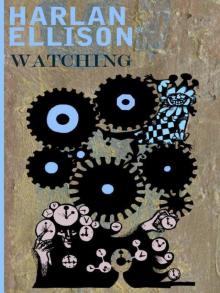 Harlan Ellison's Watching
Harlan Ellison's Watching Over the Edge/An Edge in My Voice
Over the Edge/An Edge in My Voice Troublemakers: Stories by Harlan Ellison
Troublemakers: Stories by Harlan Ellison Gentleman Junkie and Other Stories of the Hung-Up Generation
Gentleman Junkie and Other Stories of the Hung-Up Generation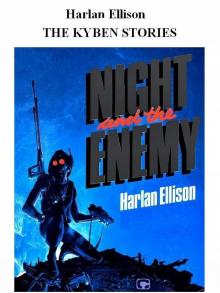 The Kyben Stories
The Kyben Stories From the Land of Fear
From the Land of Fear The Top of the Volcano: The Award-Winning Stories of Harlan Ellison
The Top of the Volcano: The Award-Winning Stories of Harlan Ellison Sleepless Nights in the Procrustean Bed
Sleepless Nights in the Procrustean Bed Ellison Wonderland
Ellison Wonderland Children of the Streets
Children of the Streets Can & Can'tankerous
Can & Can'tankerous Love Ain't Nothing but Sex Misspelled
Love Ain't Nothing but Sex Misspelled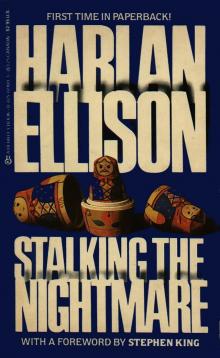 Stalking the Nightmare
Stalking the Nightmare Approaching Oblivion
Approaching Oblivion Deathbird Stories
Deathbird Stories Partners in Wonder
Partners in Wonder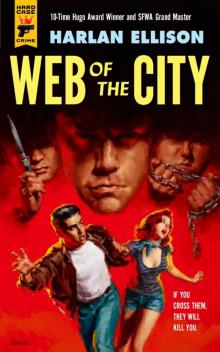 Web of the City
Web of the City Spider Kiss
Spider Kiss A Boy and His Dog
A Boy and His Dog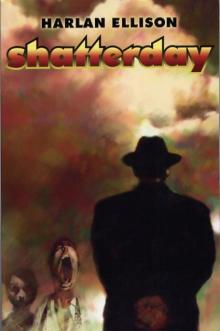 Shatterday
Shatterday Slippage: Previously Uncollected, Precariously Poised Stories
Slippage: Previously Uncollected, Precariously Poised Stories Repent, Harlequin! Said the Ticktockman
Repent, Harlequin! Said the Ticktockman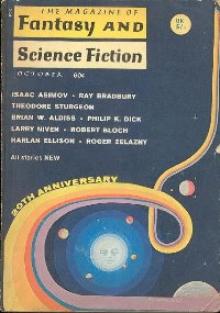 Come to Me Not in Winter's White
Come to Me Not in Winter's White The Song the Zombie Sang
The Song the Zombie Sang The Other Glass Teat
The Other Glass Teat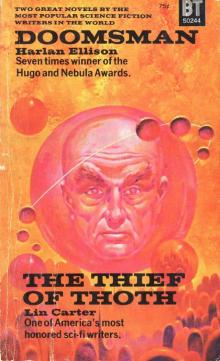 Doomsman - the Theif of Thoth
Doomsman - the Theif of Thoth The City on the Edge of Forever
The City on the Edge of Forever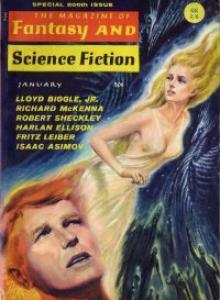 I See a Man Sitting on a Chair, and the Chair Is Biting His Leg
I See a Man Sitting on a Chair, and the Chair Is Biting His Leg The Harlan Ellison Hornbook
The Harlan Ellison Hornbook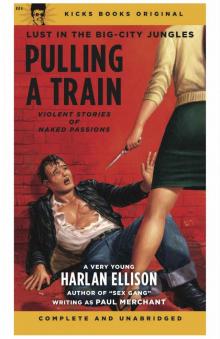 Pulling A Train
Pulling A Train The Glass Teat - essays of opinion on the subject of television
The Glass Teat - essays of opinion on the subject of television An Edge in My Voice
An Edge in My Voice Angry Candy
Angry Candy Troublemakers
Troublemakers The Top of the Volcano
The Top of the Volcano Over the Edge
Over the Edge Survivor #1
Survivor #1 Slippage
Slippage